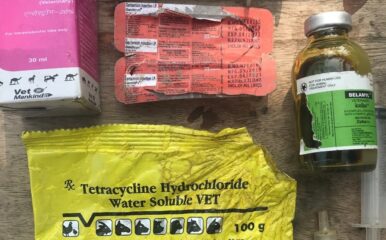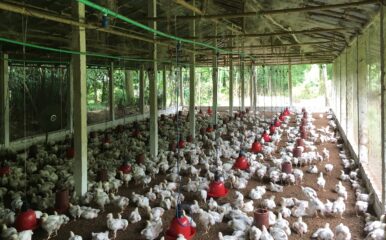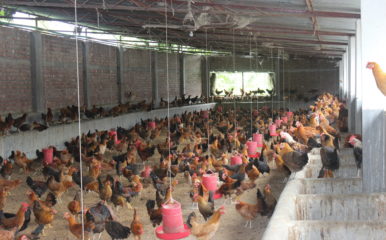
More than software training
Published on 05/02/2024
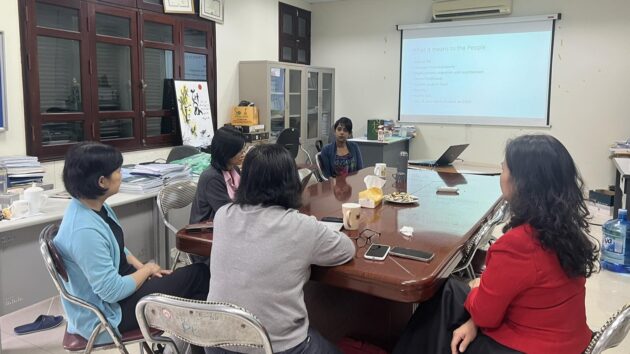
Ensuring biosecurity in poultry products has been a major concern around the world for decades. It continues to be a serious matter, mustering the attention of not only pure scientists but also social scientists for several reasons.
Poultry products are a relatively cheap source of protein in most countries – not least because chicken meat and eggs are less associated with religious and cultural beliefs that can discourage people from consuming other meats. Yet avian influenza and many other zoonotic diseases have raised their ugly heads in the recent past. This has led to calls for urgent action to ensure good biosecurity in the production and distribution of this nutritious and popular source of food.
Behaviour and biosecurity
It has also been realised that biosecurity risks emerge due to human behaviour, fed by cultural beliefs and attitudes. Therefore, understanding and addressing practices around poultry farming, production and distribution has also been earmarked as critically important. This is why social scientists play an important role in One Health Poultry Hub research.
As the social scientist in the One Health Poultry Hub team in Sri Lanka, I was privileged to receive a Mobility Grant to learn a software program designed for qualitative data analysis in social scientific research. All the social scientific studies in the Hub followed qualitative research designs, and in the initial work packages the social science teams conducted their analyses manually. Later, lead partner the Royal Veterinary College (RVC) purchased MAXQDA, a qualitative data analysis software, for all partner countries to conduct their qualitative analyses.
Not only did I want to learn MAXQDA for data analysis in the Hub’s studies, but I also wanted to garner enough experience to teach MAXQDA to my undergraduate and postgraduate students at the University of Peradeniya. So I sought the support of another Hub social scientist to receive hands-on training in using this software. Other Hub researchers were working on similar, if not the same, themes and grappling with identical problems.
Knowledge exchange
The result was Professor Nguyen Thi Dien from the Vietnam National University of Agriculture (VNUA) benevolently welcomed me at the Department of Sociology, Faculty of Social Sciences, for 15 days of training on MAXQDA. Vietnam and Sri Lanka are the only two countries in the Hub working on studies related to gender in the poultry industry. Both countries had reached the end of data collection for these gender studies and were about to begin data analysis using MAXQDA.
On 1 November 2023, I flew to VNUA in Hanoi armed with our data for a 10-day workshop. I was to learn the data analysis software and also exchange knowledge with our Vietnamese partners by comparing data and findings in our gender studies.
I am not exaggerating if I say this trip was much more than a mere MAXQDA training for me. It was more than two weeks packed with rich learning culture exchange and networking, and involved conducting and participating in lectures and insightful discussions with academics from VNUA on related topics.
Sociology is certainly not about sitting behind closed doors in a laboratory or burying oneself in piles of books. Our laboratory is out in the society, and that is where I was: out exploring a new culture, every second a learning experience.
Vietnamese hospitality is overwhelming. Professor Dien had arranged a spacious office room for me to work in during my stay. I worked mainly with Hub members Dr Thanh Huong Tran, Dr Ha Pham and Dr Nguyen Khue and my every need was attended to by this group of amazing ladies. They even knew what type of coffee I liked and made sure I had a good supply of it. All this was part of my learning experience.
The MAXQDA training itself was highly interactive and learner-centred. The basics were imparted by Professor Dien in a series of presentations. There were many other participants, including Hub members and academics from the Department of Law. Dr Khue was one of the Vietnamese participants who had participated in the online training workshop for MAXQDA organised by RVC, and I interacted with her a lot when I encountered particular problems using the software.
Qualitative analysis
The first three days were spent familiarising myself with the data I had taken from Sri Lanka. The next couple of days I revised the list of codes already formulated by the Sri Lankan social science team. The rest of the programme focused on uploading the transcripts, coding the data and conducting various qualitative analyses using MAXQDA.
Gender studies
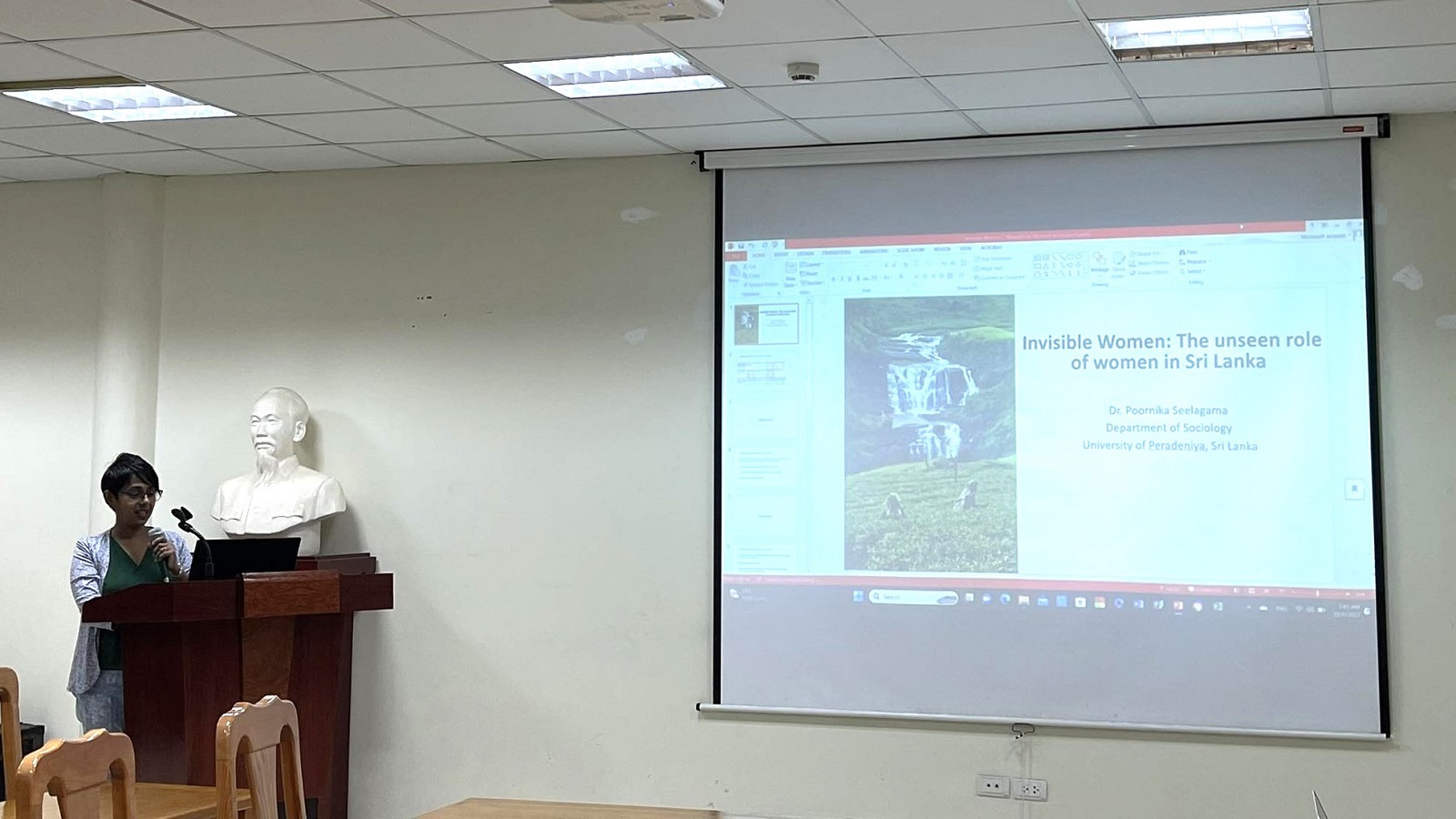
As the host, Professor Dien facilitated and invited me to conduct two lectures open to VNUA academics on women in Sri Lanka and climate change, which spurred enlightening discussions and comparisons between Vietnam and Sri Lanka. Both discussions, including the discussion on climate change, revolved around gender as a topic as it was the focal point in ongoing Hub research at that time. These talks saw the participation of academics from VNUA departments other than sociology, and the observations could not have been more multidimensional and stimulating.
Two programme days were dedicated to comparing the gender studies of Sri Lanka and Vietnam. All Vietnam Hub members were present at these meetings, chaired by Professor Dien, and we did a detailed comparison of the scope, methodology, sample, and findings of the studies in the two countries. Neither country had finalised their results at this point, and so the discussions were not conclusive. Yet this activity alone was eye-opening and stimulating, laying a perfect foundation to the write up that was to start soon.
Weekends on my trip were spent exploring vibrant Vietnam, indulging in the cuisine, strolling the streets of Old Quarters bustling with tourists, rickshaws and local hawkers. I visited Halon Bay and Ninh Binh, saw magical stalactites and stalagmites, took boat rides in the winding rivers laced with giant limestone mountains and hiked to the top of a hill shrouded with silky clouds to reach heaven and look down at earth.
I learned much about how the tourism sector in Vietnam is organised and operated, and observed that – unlike in Sri Lanka – women play a very special role it. This observation led me to think and read more about women in tourism and come up with new ideas for future research.
This experience was one that I could safely call a true and authentic exposure for a sociologist. It was so much more than a software training for me. I am very much obliged to RVC for creating this opportunity for me and Professor Dien and the VNUA team for hosting me for two long weeks!

